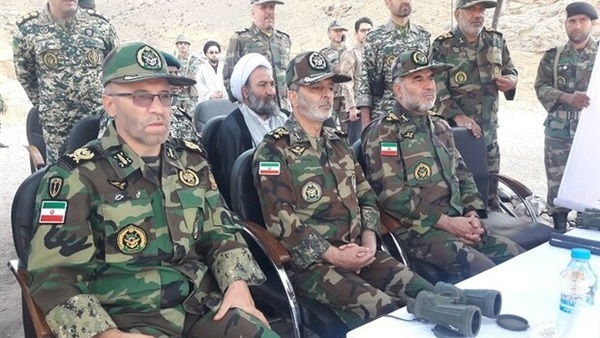Iran launches military drills amid regional tensions

The Iranian army has started surprise military drills along Iran's joint border with Turkey and Iraq's Kurdistan region. The drills come at a time of high tension in the region.
The drills have kicked off in the
presence of the Commander-in-Chief of the Islamic Republic of Iran Army,
Abdolrahim Mousavi. Participating in the training are rapid deployment units as
well as the Iranian air force. The training takes place in the West Azerbaijan
Province, in the northwestern part of Iran. This province has a majority
Turkish-Kurdish population.
Azeri people
The West Azerbaijan Province
constitutes an extension of the Azeri ethnicity, which is mainly made up of
Turkic people. The states of Azerbaijan and Turkey are located to the north
from the province. To the west of the province, there is also Turkey and Iraq.
The border between Azerbaijan and Iran extends over 760 kilometers. The
province also overlooks the Caspian Sea, known to be a huge reserve of natural
gas.
Fars News Agency, which is close
to the Iranian Revolutionary Guard Corpse, said the drills aim at assessing the
preparedness of Iranian troops.
Mousavi said the drills come
after changing the doctrine of Iranian ground troops from a defensive one to an
offensive one.
He added that they also come
after the introduction of the rapid deployment force into the army.
"Surprise drills are
necessary at this juncture," Mousavi said. "They are important for
assessing the efficiency of the troops and their preparedness for combat."

Iranian affairs specialist Osama al-Hatimi said the ongoing drills cannot be separated from the ongoing Turkish operation in the northeastern part of Syria.
"There are practical reasons behind the drills," al-Hatimi told The Reference. "They amount to a preemptive operation aiming at protecting the Iranian border."
He said Iran is afraid that some Kurdish factions in Iran would carry out any action in solidarity with Kurdish fighters in Syria.
"The Kurdish fighters in Syria are the prime target of the Turkish operation in northeastern Syria," al-Hatimi said. "The Kurds in Iran and Iraq may use the current conditions to destabilize both countries."





